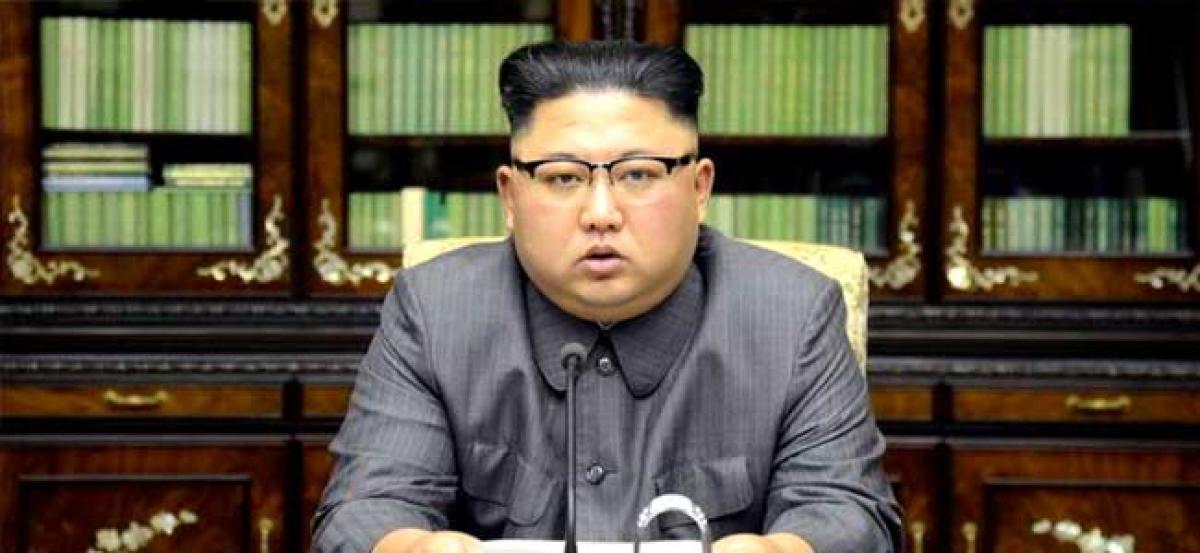Live
- PDSU flays govt apathy in solving students’ problems
- Contribution of tribals to freedom struggle ignored
- Modi dividing society: Pawar
- Downing Street says sorry for wine, non-veg food in Diwali menu
- Lokesh hailed for withdrawing cases against employees
- India’s economy in sweet spot with strong growth: Moody’s
- YSRCP govt failed to release sufficient funds for medical colleges, flays Minister
- Revanth offensive ahead!
- Resolve land-related issues in a transparent manner: Collector
- MyVoice: Views of our readers 16th November 2024
Just In

Imagine a national budget that reflects steady growth, gives a healthy boost to science and technology while reserving big slices of the
Imagine a national budget that reflects steady growth, gives a healthy boost to science and technology while reserving big slices of the overall pie to defense and social spending. It's generous with infrastructure improvements, and is certain of unquestioning, unanimous approval in parliament.
Congratulations. You are now thinking like a North Korean economist.
North Korea's Supreme People's Assembly passed a budget with all of those features last week in an annual ritual reflecting the country's conflicting desires to keep up appearances, especially for potential foreign investors, while obscuring even the most basic statistics needed to gauge its economic health.
The mysterious manner in which North Korea reports its budgets and generally hides other economic indicators is particularly frustrating as experts are now carefully scrutinising whatever information they can get in an effort to understand the motives of leader Kim Jong Un as he prepares to hold his first summit with South Korean President Moon Jae-in next week and US President Donald Trump in late May or early June.
"North Korea really is unique in this regard," said Benjamin Silberstein, an associate scholar with the Foreign Policy Research Institute and co-editor of the North Korean Economy Watch website. "Going back to the 1960s, even Soviet bloc diplomats recorded their frustrations at how not even basic legal documents were made public." The budget's typically rosy outlook contrasts sharply with a slew of economic challenges facing leader Kim Jong Un.
The country has logged significant growth since Kim assumed power in 2011, but is now operating under the toughest set of international trade sanctions it has ever had to endure. Beijing's apparent decision toward the end of last year to tighten restrictions even beyond those mandated by the United Nations is squeezing it further.
"No matter the actual state of the economy during the last year, it would have been politically difficult to recognize too much of a loss from economic sanctions and the like," Silberstein said. "Over the years, Pyongyang's economic reporting has gotten much closer to being somewhat credible, but regardless of actual performance, it would have likely been difficult to publicize any losses for last year in particular." North Korea is notoriously reluctant to provide transparency on just about anything.
It stopped revealing its actual budget numbers in 1981, opting instead for percentages of growth or of the total, as it did again this year. It hasn't published macroeconomic performance indicators since 1965. Most foreign experts rely instead on data compiled by the South Korean government.
Because of the way it's reported, it's not even entirely clear if the budget is balanced.
That said, the budget's highlights include: Revenues are rising. For fiscal 2017, North Korea forecast a 3.1% revenue increase, which it later revised up, to 4.9%.
The increase this year is forecast to be about the same, 3.2%. Total expenditures are expected to grow 5.1%, down in percentage terms at least, from 5.4% for last year's budget. To Silberstein, this has a somewhat realistic ring to it. "Historically, communist economies would often claim that plans had been over-fulfilled by factors far too high to be realistic and that is clearly not the case here." "The state budget for this year will be successfully carried out through meticulous organization of economic operation and command and thus financially back the building of a powerful socialist country," North Korea's finance minister, Ki Kwang Ho, said in announcing the budget to parliament.
What's not in the budget is often more important than what is.
"It's laughable they have the audacity to put out a budget report that doesn't reference the shocking drop in trade, at least as announced officially by China," said William Brown, a retired US government economist who has worked for the Commerce Department and the CIA and is now at Georgetown University.
"From this data it doesn't look like anything is happening. I had hoped to see a big rise in property sales privatization but that doesn't show up here." Brown noted North Korea's use of percentages makes the budget all the more opaque.
"One thing that always catches people is the translation of growth terminology," he said. "The Koreans, like the Chinese, include the base and say growth was 100.8 or so, meaning a 0.8% increase. But without the actual numbers, and no references to price changes, it's impossible to know what it means." To those North Korean economists, that's undoubtedly a feature, not a bug.

© 2024 Hyderabad Media House Limited/The Hans India. All rights reserved. Powered by hocalwire.com







